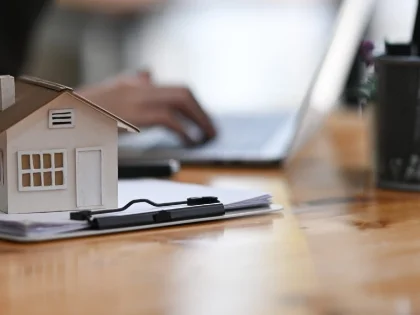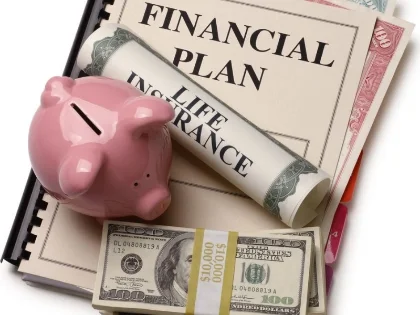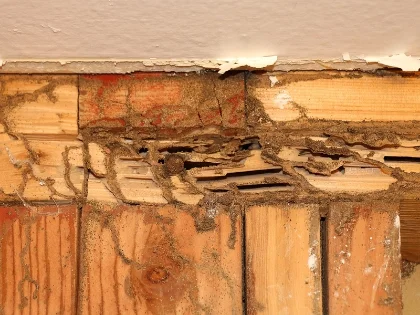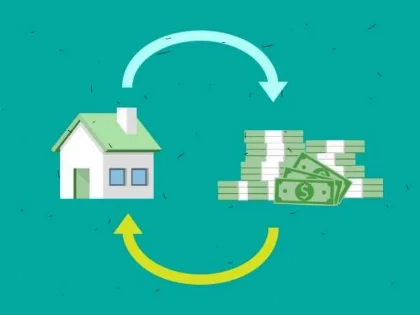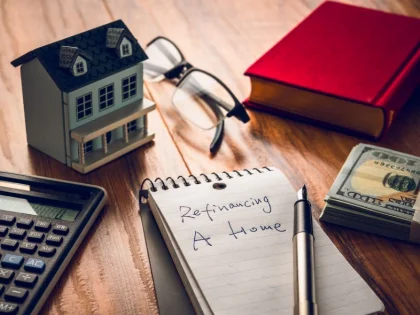The Ultimate Guide To AvoidingForeclosure
The Ultimate Guide to Avoiding Foreclosure walks readers through the steps involved in the process and looks at workable solutions that help homeowners stay in their properties. It describes how homeowners might avoid foreclosure by getting assistance early in the process. Being proactive is critical to avoiding foreclosure; this cannot be overstated. It may be possible for borrowers to save their homes through a loan modification or mortgage repayment plan.
1. Be aware of your rights.

2. Speak with your lender.
 Despite being a homeowner's greatest fear, foreclosure is not always the outcome. There are ways to keep your house and credit safe from foreclosure, even if you have fallen behind on your mortgage payments. It's important to speak with your lender as often as possible.
It's possible that lenders will cooperate with you to resolve your financial issue. Repayment plans, forbearance agreements, loan modifications, and short sales—in which you sell the home for less than the amount owed on the mortgage—are among your options, provided the lender approves of them.
A HUD-approved housing consultant can also be of assistance to you. They can offer guidance on preventing foreclosure as well as other matters, like locating alternate housing and starting over. All correspondence with your lender or servicer should be kept on file. Include phone numbers, names, and a synopsis of the topics covered. If required, send a follow-up letter via certified mail along with a request for a return receipt. Make sure you outline the causes of your delinquency, as well as the actions you're taking to get things under control.
Despite being a homeowner's greatest fear, foreclosure is not always the outcome. There are ways to keep your house and credit safe from foreclosure, even if you have fallen behind on your mortgage payments. It's important to speak with your lender as often as possible.
It's possible that lenders will cooperate with you to resolve your financial issue. Repayment plans, forbearance agreements, loan modifications, and short sales—in which you sell the home for less than the amount owed on the mortgage—are among your options, provided the lender approves of them.
A HUD-approved housing consultant can also be of assistance to you. They can offer guidance on preventing foreclosure as well as other matters, like locating alternate housing and starting over. All correspondence with your lender or servicer should be kept on file. Include phone numbers, names, and a synopsis of the topics covered. If required, send a follow-up letter via certified mail along with a request for a return receipt. Make sure you outline the causes of your delinquency, as well as the actions you're taking to get things under control.
3. Seek substitutes.
 Because of the negative connotation associated with foreclosure, homeowners may find it difficult to take action when their property is in jeopardy. However, homeownership doesn't have to stop with foreclosure. For instance, you might be able to arrange a resolution with your lender to avert a formal foreclosure auction if you get in touch with them early enough. This covers solutions that can pay off your debt without harming your credit, such as a deed in lieu of foreclosure, as well as options like refinancing or loan modification.
By giving the house back to your mortgage lender in lieu of foreclosure and fully repaying the loan, you can avoid paying thousands of dollars in additional costs and penalties that come with a standard foreclosure sale. Forbearance programs and loan modifications, which can temporarily adjust your payments to give you time to get back on track, are additional options for mitigating losses.
Because of the negative connotation associated with foreclosure, homeowners may find it difficult to take action when their property is in jeopardy. However, homeownership doesn't have to stop with foreclosure. For instance, you might be able to arrange a resolution with your lender to avert a formal foreclosure auction if you get in touch with them early enough. This covers solutions that can pay off your debt without harming your credit, such as a deed in lieu of foreclosure, as well as options like refinancing or loan modification.
By giving the house back to your mortgage lender in lieu of foreclosure and fully repaying the loan, you can avoid paying thousands of dollars in additional costs and penalties that come with a standard foreclosure sale. Forbearance programs and loan modifications, which can temporarily adjust your payments to give you time to get back on track, are additional options for mitigating losses.
4. Act
 A foreclosure is a big financial loss with potentially dire repercussions. As quickly as possible, find out about your choices if you are experiencing difficulties paying your mortgage.
There are several options to avoid going through the foreclosure process, such as negotiating with your servicer to modify your loan, selling the property through a short sale, or paying off the debt with a deed in lieu of foreclosure. Generally, foreclosures begin when you miss three to six months' worth of payments. It is crucial to look for help from a program that prevents foreclosure and provides counseling and services at no cost or at a reduced cost.
A foreclosure may have a significant detrimental effect on your credit report, which could affect your job and make it difficult for you to obtain new loans or housing. You may keep one of your most significant investments safe from foreclosure by acting quickly and considering all of your choices.
A foreclosure is a big financial loss with potentially dire repercussions. As quickly as possible, find out about your choices if you are experiencing difficulties paying your mortgage.
There are several options to avoid going through the foreclosure process, such as negotiating with your servicer to modify your loan, selling the property through a short sale, or paying off the debt with a deed in lieu of foreclosure. Generally, foreclosures begin when you miss three to six months' worth of payments. It is crucial to look for help from a program that prevents foreclosure and provides counseling and services at no cost or at a reduced cost.
A foreclosure may have a significant detrimental effect on your credit report, which could affect your job and make it difficult for you to obtain new loans or housing. You may keep one of your most significant investments safe from foreclosure by acting quickly and considering all of your choices.

